NSYSU joins Taiwan-Japan Alliance of Local Revitalization and Social Practice
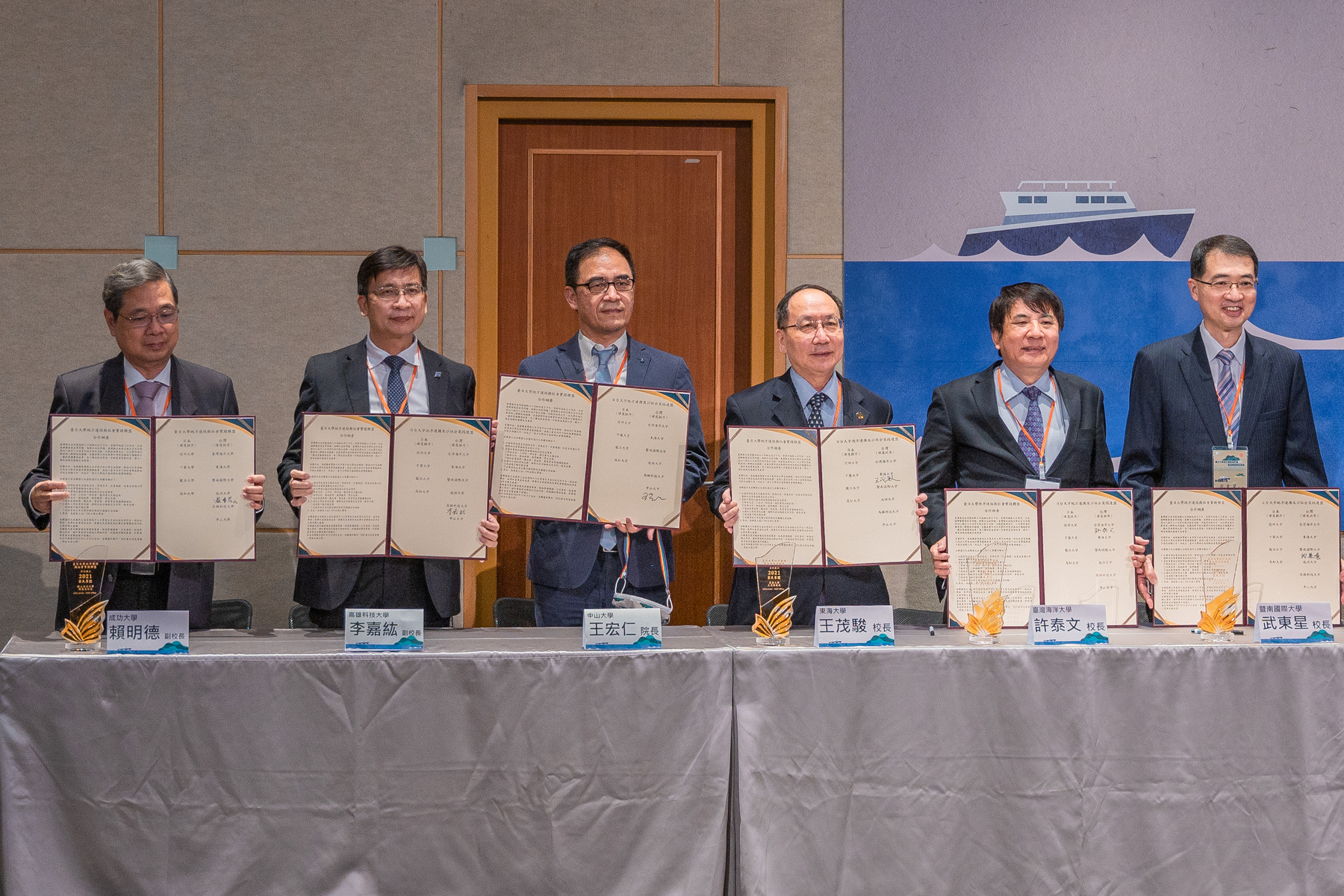
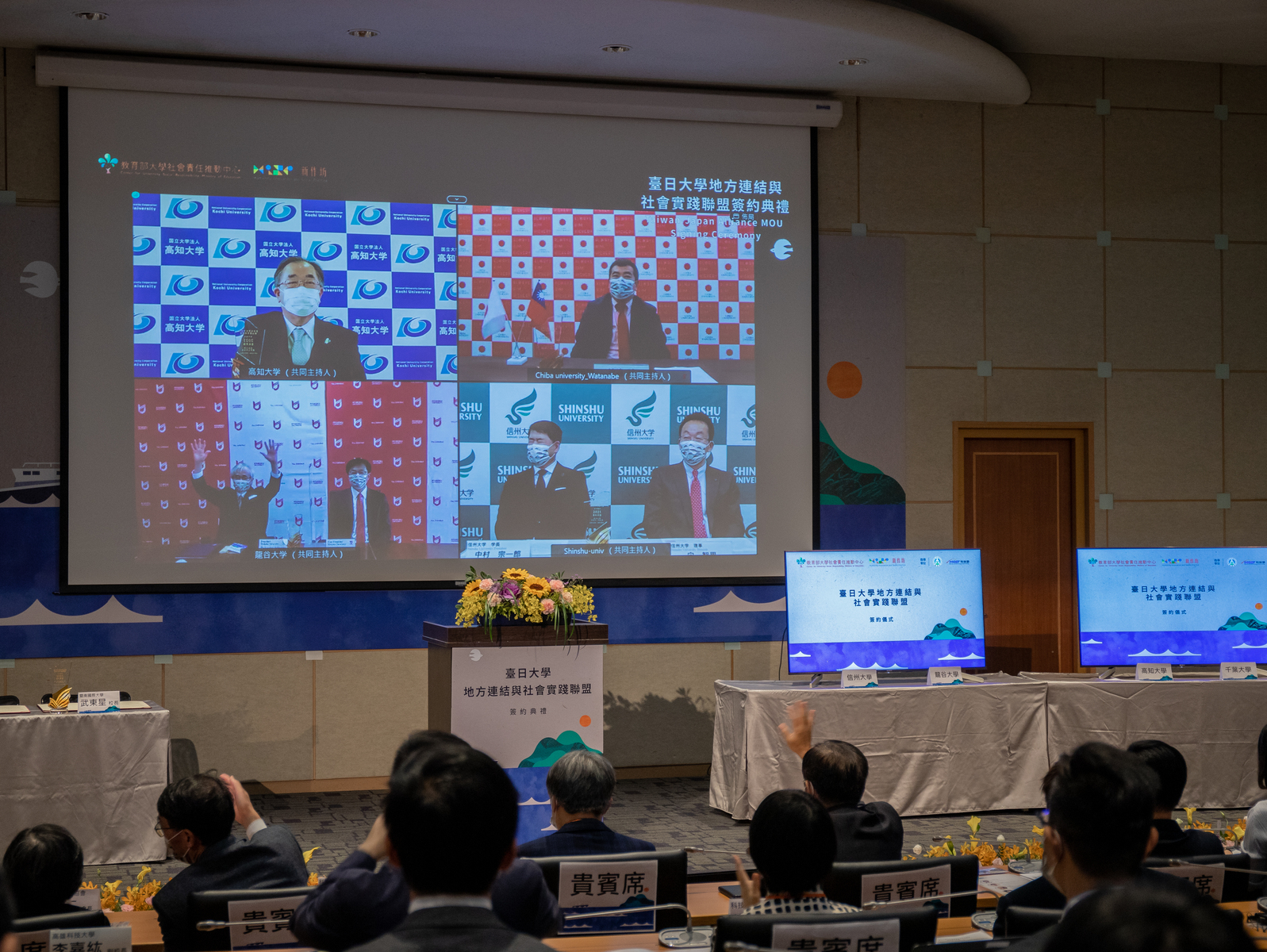
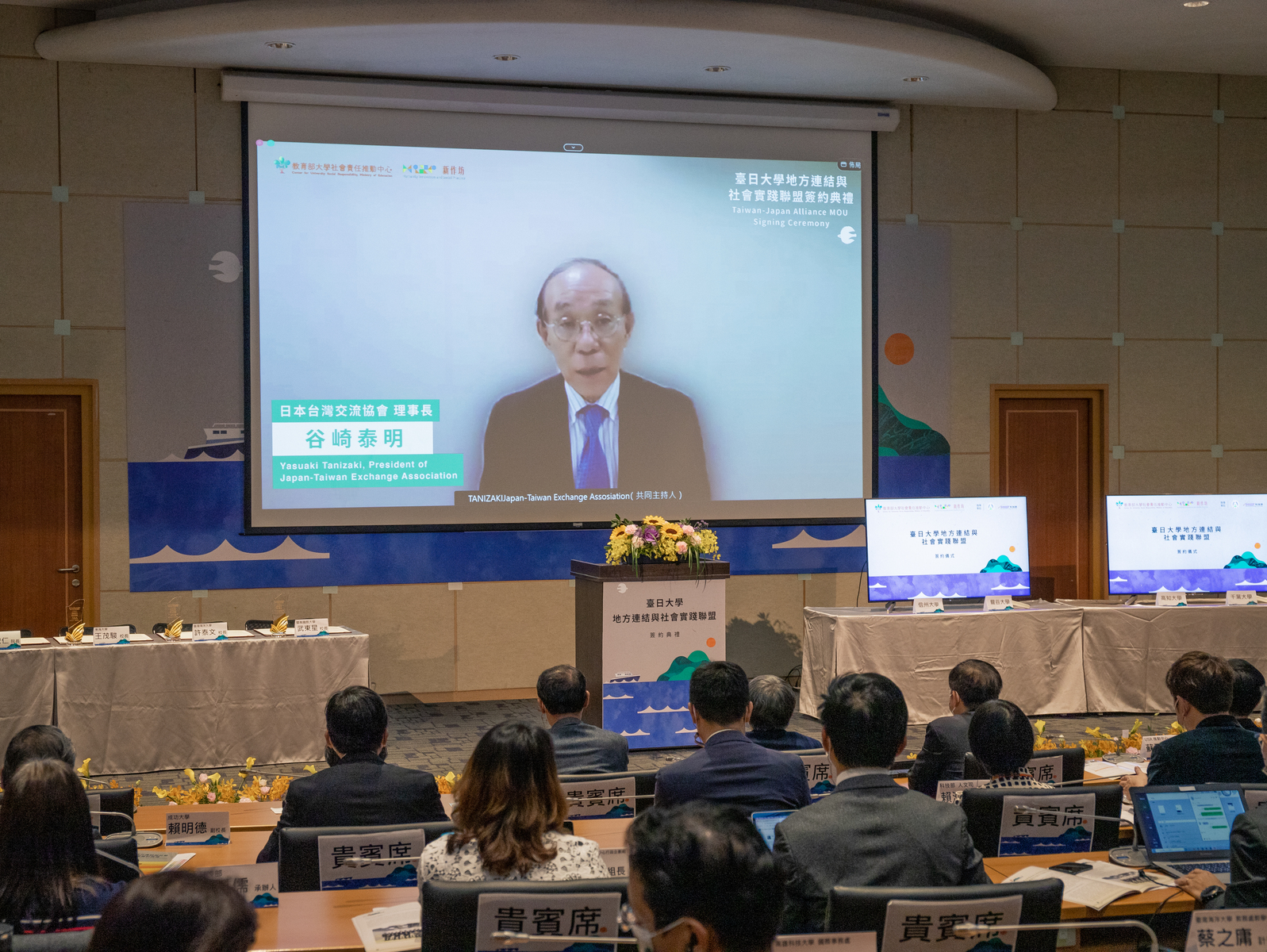
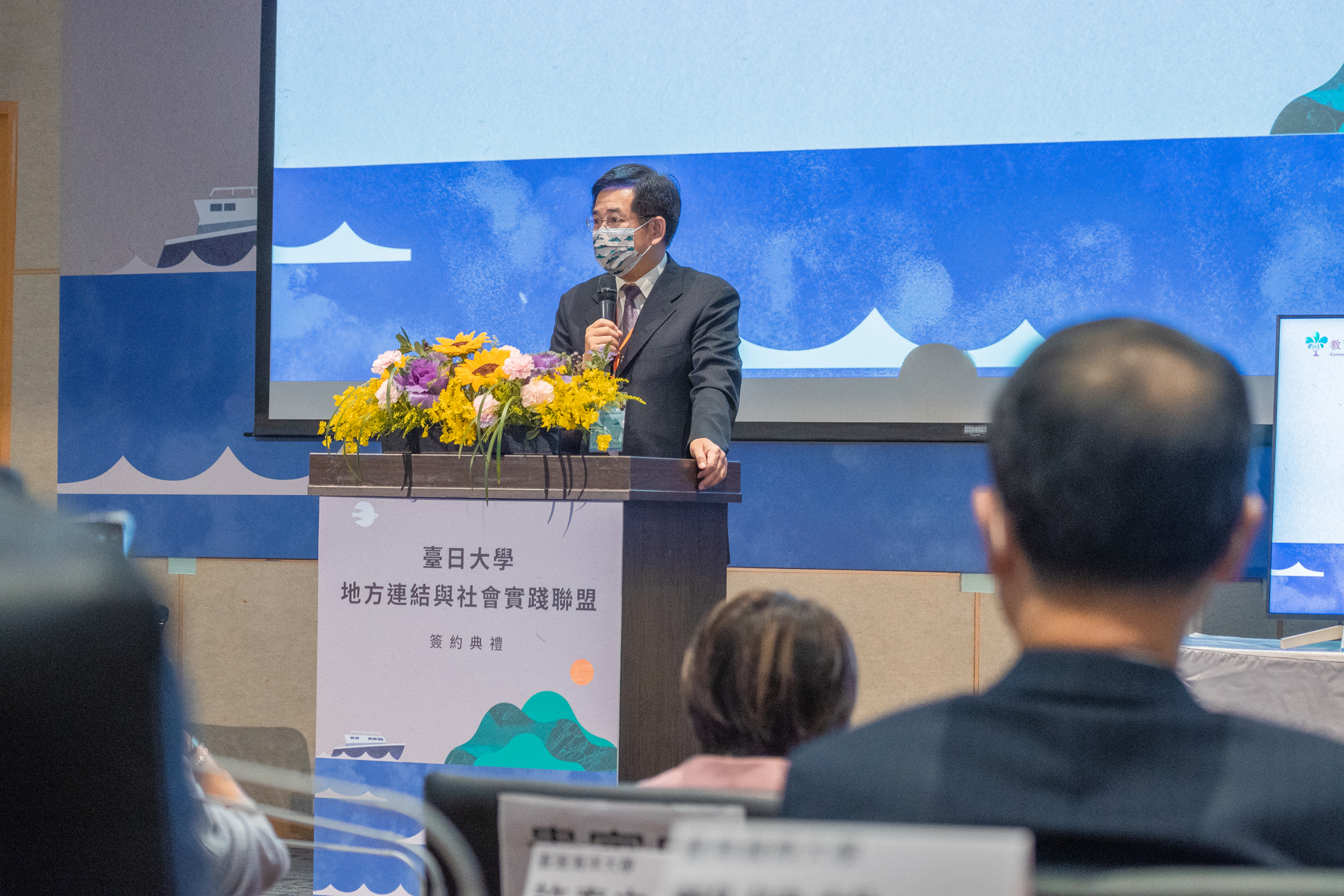
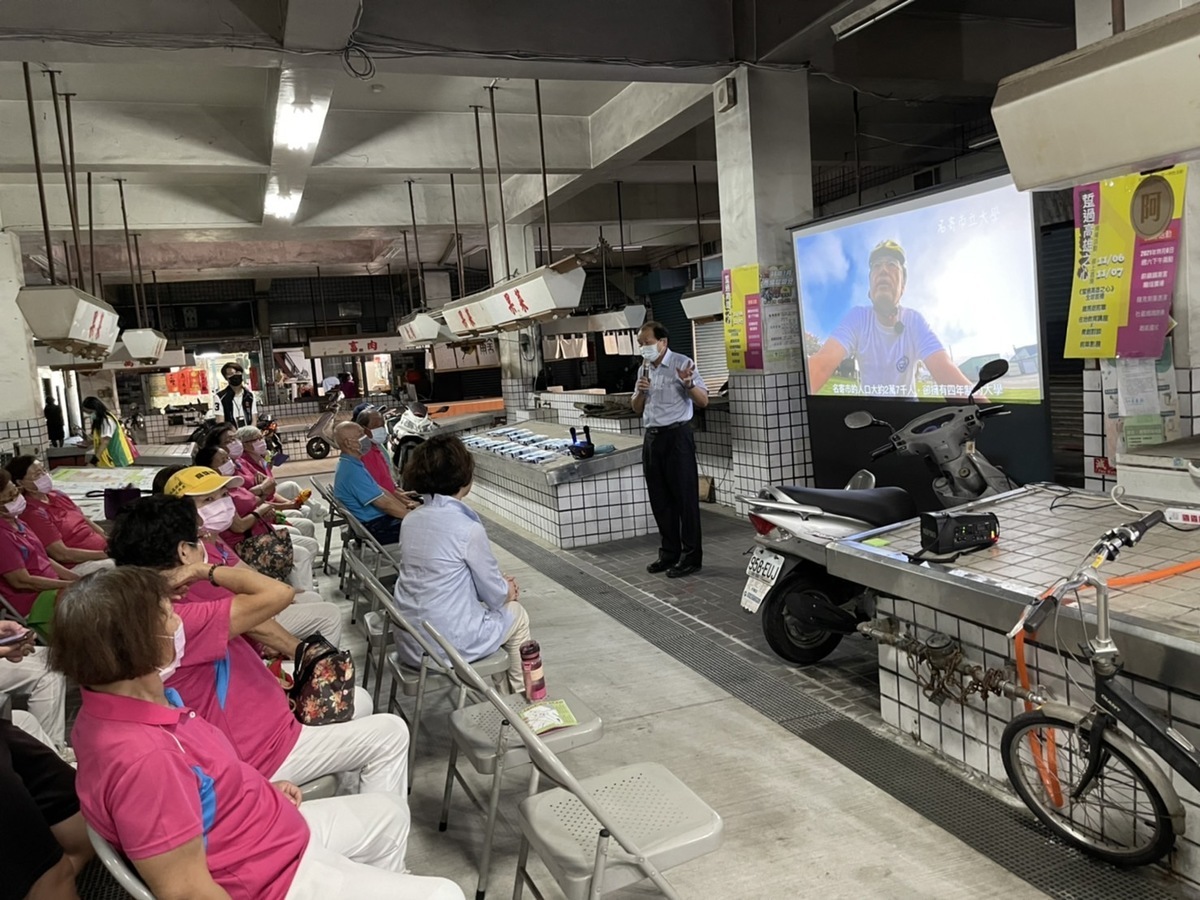
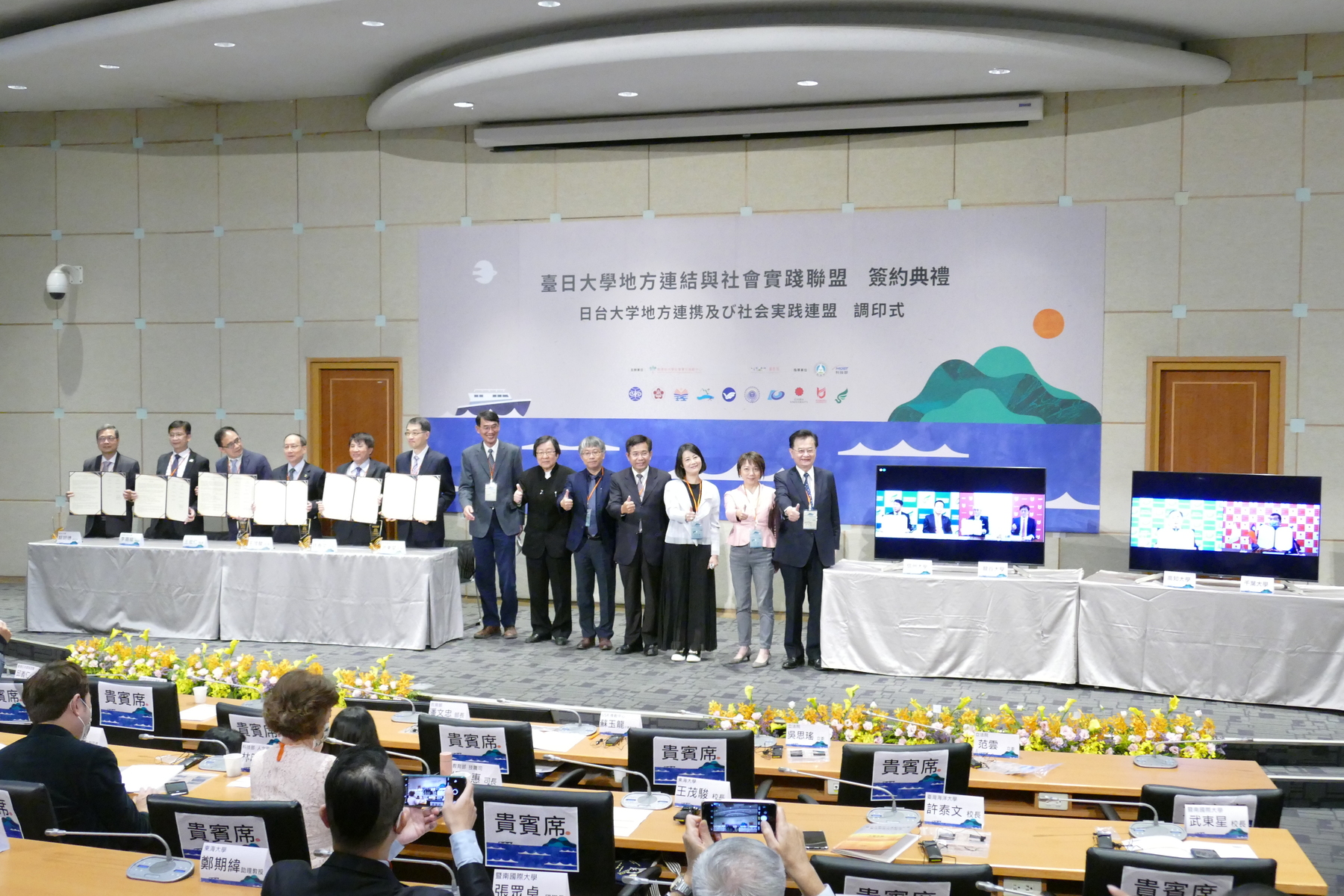
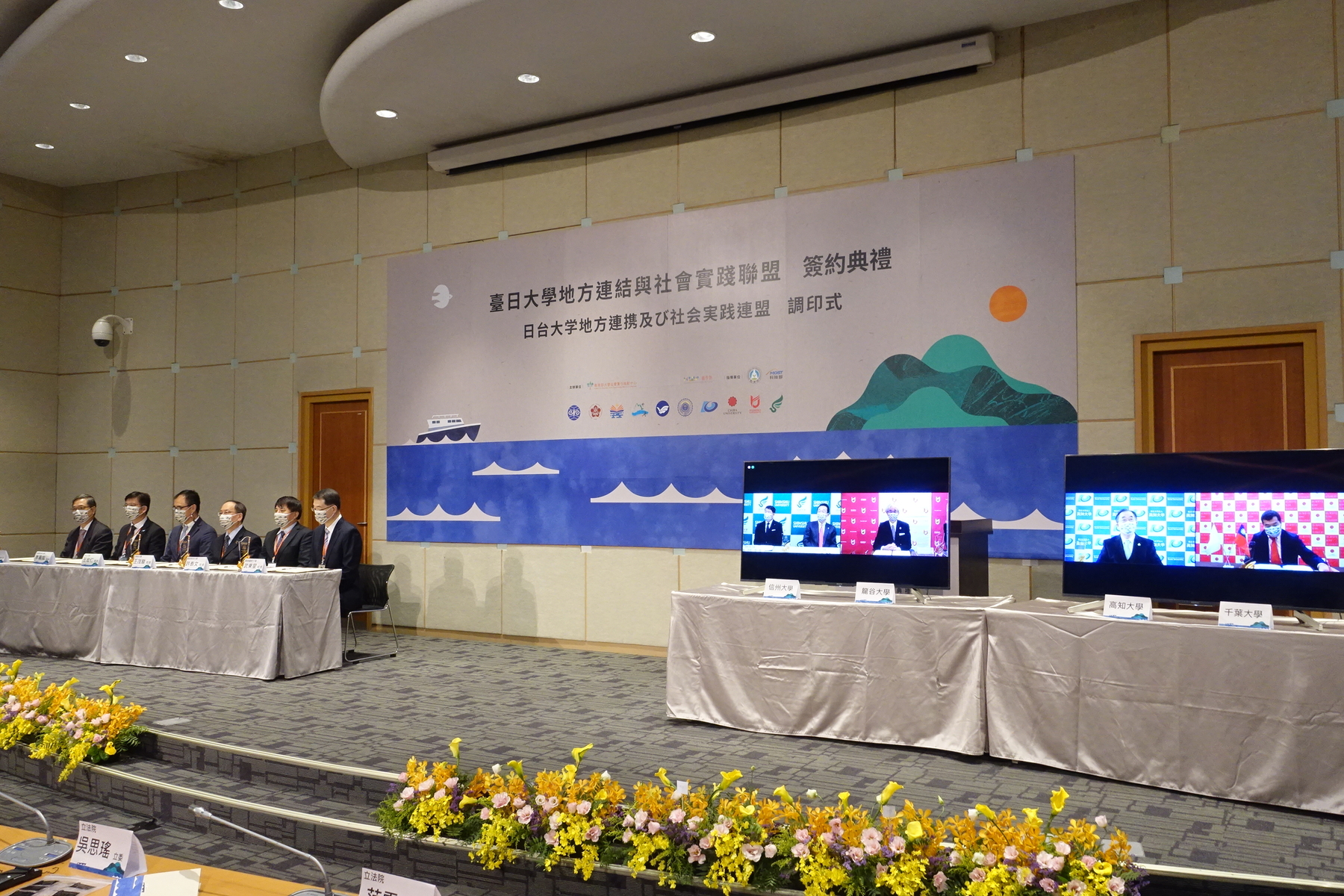
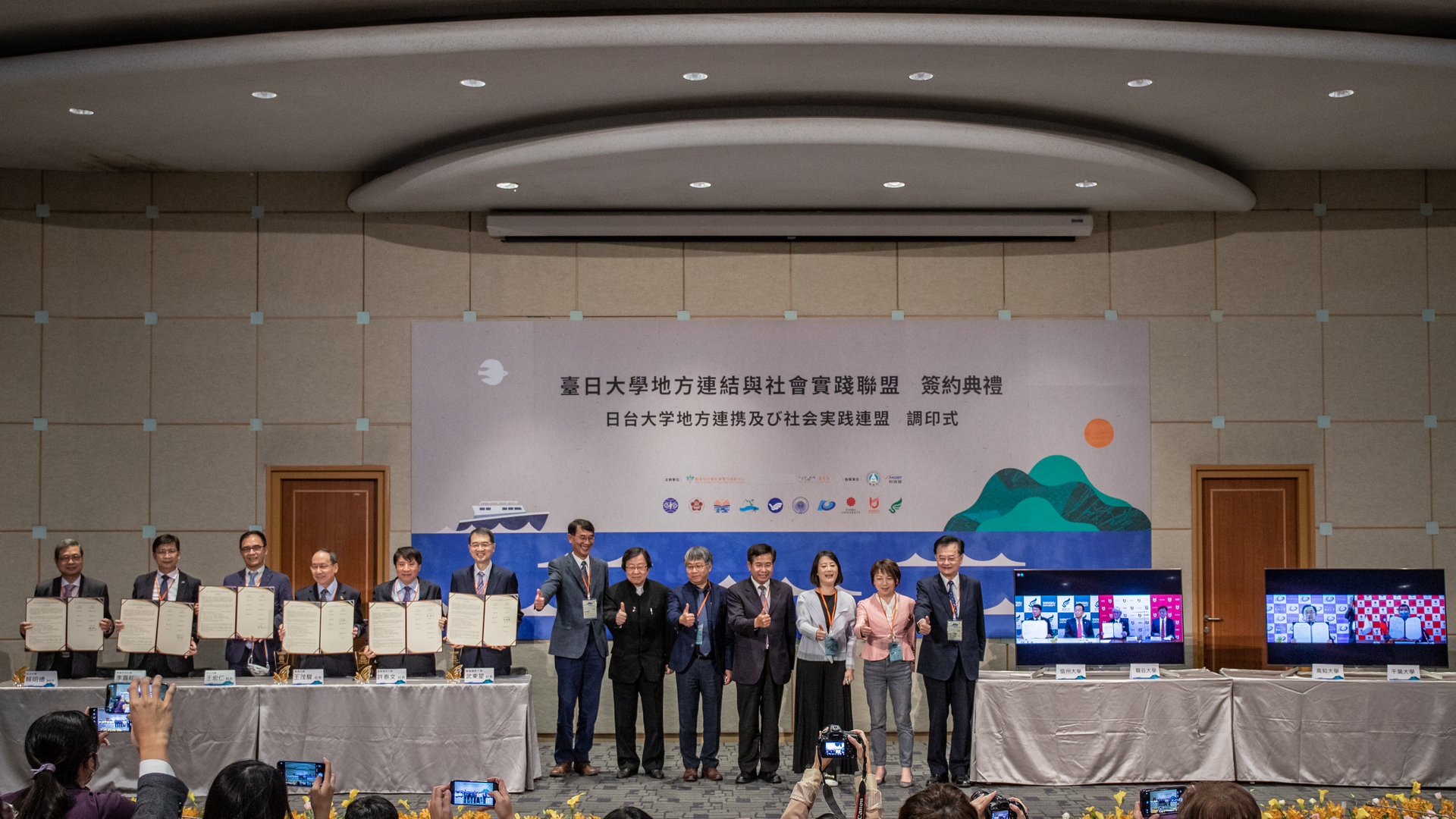
2021-12-03
(Provided by Social Engagement Center) In a recent signing ceremony, National Sun Yat-sen University, National Cheng Kung University, National Taiwan Ocean University, National Chi Nan University, Tunghai University, and National Kaohsiung University of Science and Technology joined the Taiwan-Japan Alliance of Local Revitalization and Social Practice, launched by the Center for University Social Responsibility of the Ministry of Education and the office of the Humanity Innovation and Social Practice project of the Ministry of Science and Technology. Japanese universities that joined the Alliance include Ryukoku University, Kochi University, Chiba University, and Shinshu University. Universities of both countries will focus on social practice, hoping to facilitate the exchange of experiences in social responsibility and promotion of local revitalization through the connections among the 10 universities.
Minister of Education Wen-Chung Pan, Minister of Science and Technology Minn-Tsong Lin, President of the Taiwan-Japan Relations Association I-Jen Chiou, and Chairman of Japan–Taiwan Exchange Association Yasuaki Tanizaki all participated in the ceremony; Dean of Si Wan College, Hong-Zen Wang, signed the letter of intent on cooperation in the name of NSYSU. Minister of Education Wen-Chung Pan said that Taiwan and Japan have been experiencing many similar social phenomena in recent years, such as lower birth rates, aging society, and the gap between urban and rural areas, all of which need to be addressed by academic scholars. He also hopes that the establishment of the Taiwan-Japan Alliance of Local Revitalization and Social Practice can assist with better development of higher education in both countries. Chairman of Japan–Taiwan Exchange Association Yasuaki Tanizaki mentioned that Japan and Taiwan have been promoting regional revitalization, and through cooperation, they will further strengthen bilateral ties.
Dean Hong-Zen Wang pointed out that NSYSU has had considerable international experiences in the field of revitalization and social practice with Japan. This includes a bilateral study tour with Ryukoku University in Kyoto focusing on environmental sustainability as the core in local practice. In cooperation with regional offices in Himi City in Toyama Prefecture and Nayoro City in Hokkaido, the University explores the possibilities of development in issues such as urban transformation of port cities, regional revitalization, and cultural tourism, as well as cooperating with local schools in Ehime Prefecture in introducing local culture. Even though international travel has been limited in the past two years due to the epidemic, both sides have been able to communicate online. For example, the second edition of CianCao Try Try Festival held at the end of October in Kaohsiung's Cianjhen and Caoya districts included an online broadcast of videos of cycling trips in Cianjhen District, Nayoro City, and Himi City.
In the future, the Taiwan-Japan Alliance of Local Revitalization and Social Practice will organize international conferences, arrange academic visits, and share information via newsletters as a platform for exchange on social engagement issues for universities in both countries. NSYSU Social Engagement Center and Si Wan College continue to connect the Alliance with the University’s Social Responsibility (USR) projects, the Humanity Innovation and Social Practice (HISP) Project, and Counseling Center for Regional Revitalization of Southern Taiwan. International exchange and experience orientation will promote the University’s social practice outreach and effectiveness.
Taiwan-Japan Alliance of Local Revitalization and Social Practice:
https://tja.center/en
(Edited by Public Affairs Division)
(Provided by Social Engagement Center) In a recent signing ceremony, National Sun Yat-sen University, National Cheng Kung University, National Taiwan Ocean University, National Chi Nan University, Tunghai University, and National Kaohsiung University of Science and Technology joined the Taiwan-Japan Alliance of Local Revitalization and Social Practice, launched by the Center for University Social Responsibility of the Ministry of Education and the office of the Humanity Innovation and Social Practice project of the Ministry of Science and Technology. Japanese universities that joined the Alliance include Ryukoku University, Kochi University, Chiba University, and Shinshu University. Universities of both countries will focus on social practice, hoping to facilitate the exchange of experiences in social responsibility and promotion of local revitalization through the connections among the 10 universities.
Minister of Education Wen-Chung Pan, Minister of Science and Technology Minn-Tsong Lin, President of the Taiwan-Japan Relations Association I-Jen Chiou, and Chairman of Japan–Taiwan Exchange Association Yasuaki Tanizaki all participated in the ceremony; Dean of Si Wan College, Hong-Zen Wang, signed the letter of intent on cooperation in the name of NSYSU. Minister of Education Wen-Chung Pan said that Taiwan and Japan have been experiencing many similar social phenomena in recent years, such as lower birth rates, aging society, and the gap between urban and rural areas, all of which need to be addressed by academic scholars. He also hopes that the establishment of the Taiwan-Japan Alliance of Local Revitalization and Social Practice can assist with better development of higher education in both countries. Chairman of Japan–Taiwan Exchange Association Yasuaki Tanizaki mentioned that Japan and Taiwan have been promoting regional revitalization, and through cooperation, they will further strengthen bilateral ties.
Dean Hong-Zen Wang pointed out that NSYSU has had considerable international experiences in the field of revitalization and social practice with Japan. This includes a bilateral study tour with Ryukoku University in Kyoto focusing on environmental sustainability as the core in local practice. In cooperation with regional offices in Himi City in Toyama Prefecture and Nayoro City in Hokkaido, the University explores the possibilities of development in issues such as urban transformation of port cities, regional revitalization, and cultural tourism, as well as cooperating with local schools in Ehime Prefecture in introducing local culture. Even though international travel has been limited in the past two years due to the epidemic, both sides have been able to communicate online. For example, the second edition of CianCao Try Try Festival held at the end of October in Kaohsiung's Cianjhen and Caoya districts included an online broadcast of videos of cycling trips in Cianjhen District, Nayoro City, and Himi City.
In the future, the Taiwan-Japan Alliance of Local Revitalization and Social Practice will organize international conferences, arrange academic visits, and share information via newsletters as a platform for exchange on social engagement issues for universities in both countries. NSYSU Social Engagement Center and Si Wan College continue to connect the Alliance with the University’s Social Responsibility (USR) projects, the Humanity Innovation and Social Practice (HISP) Project, and Counseling Center for Regional Revitalization of Southern Taiwan. International exchange and experience orientation will promote the University’s social practice outreach and effectiveness.
Taiwan-Japan Alliance of Local Revitalization and Social Practice:
https://tja.center/en
(Edited by Public Affairs Division)
Click Num:
Share
